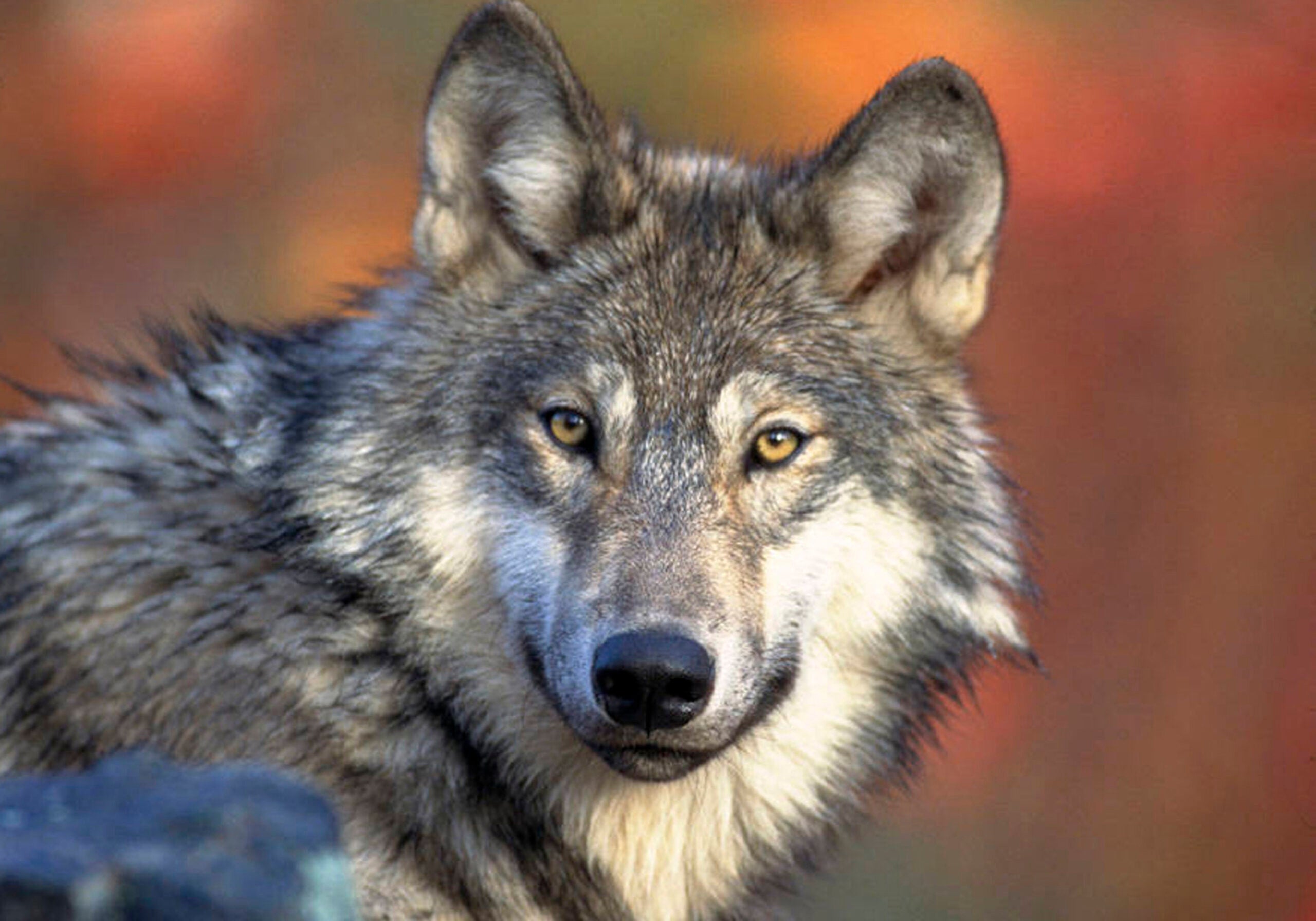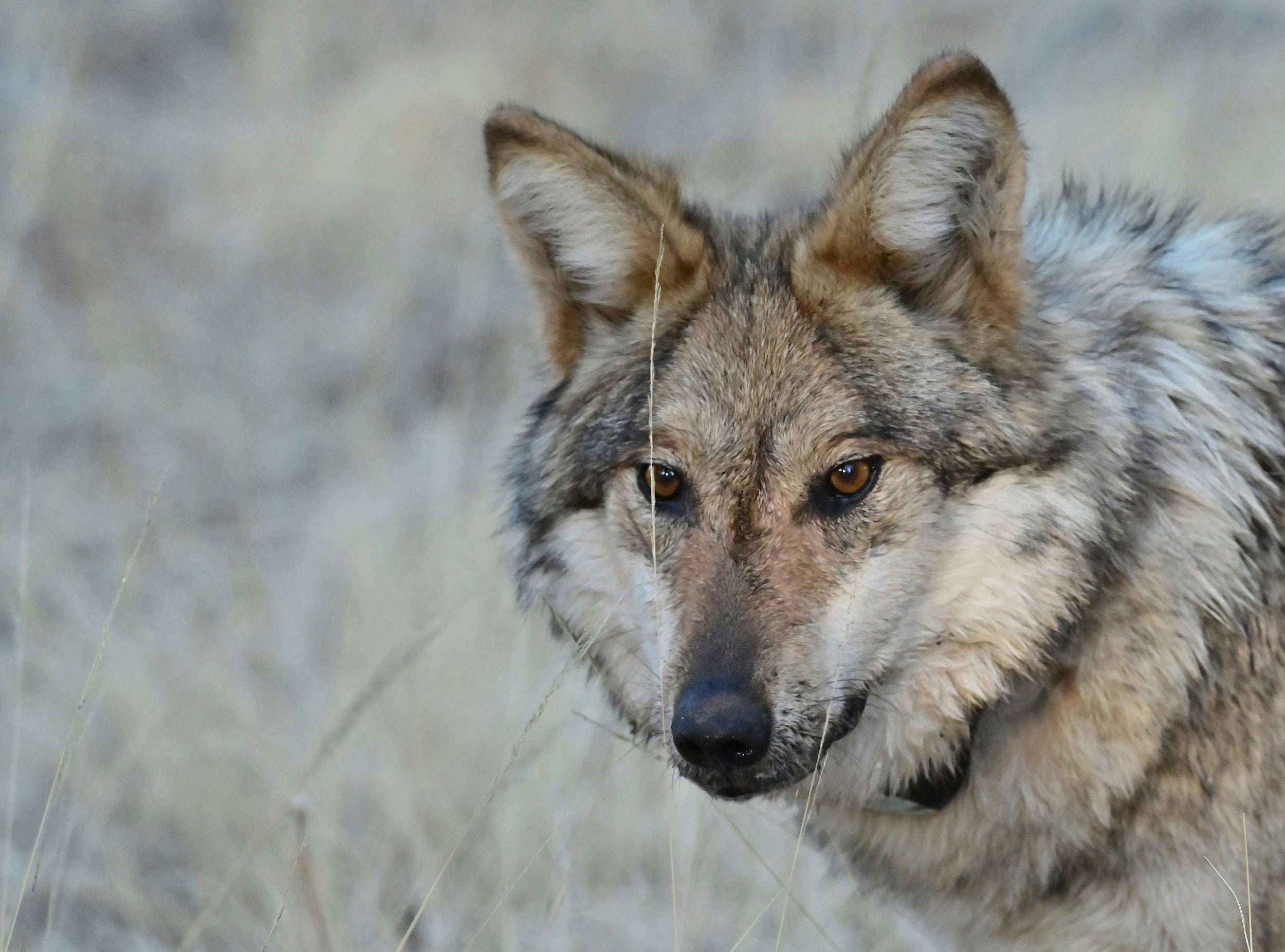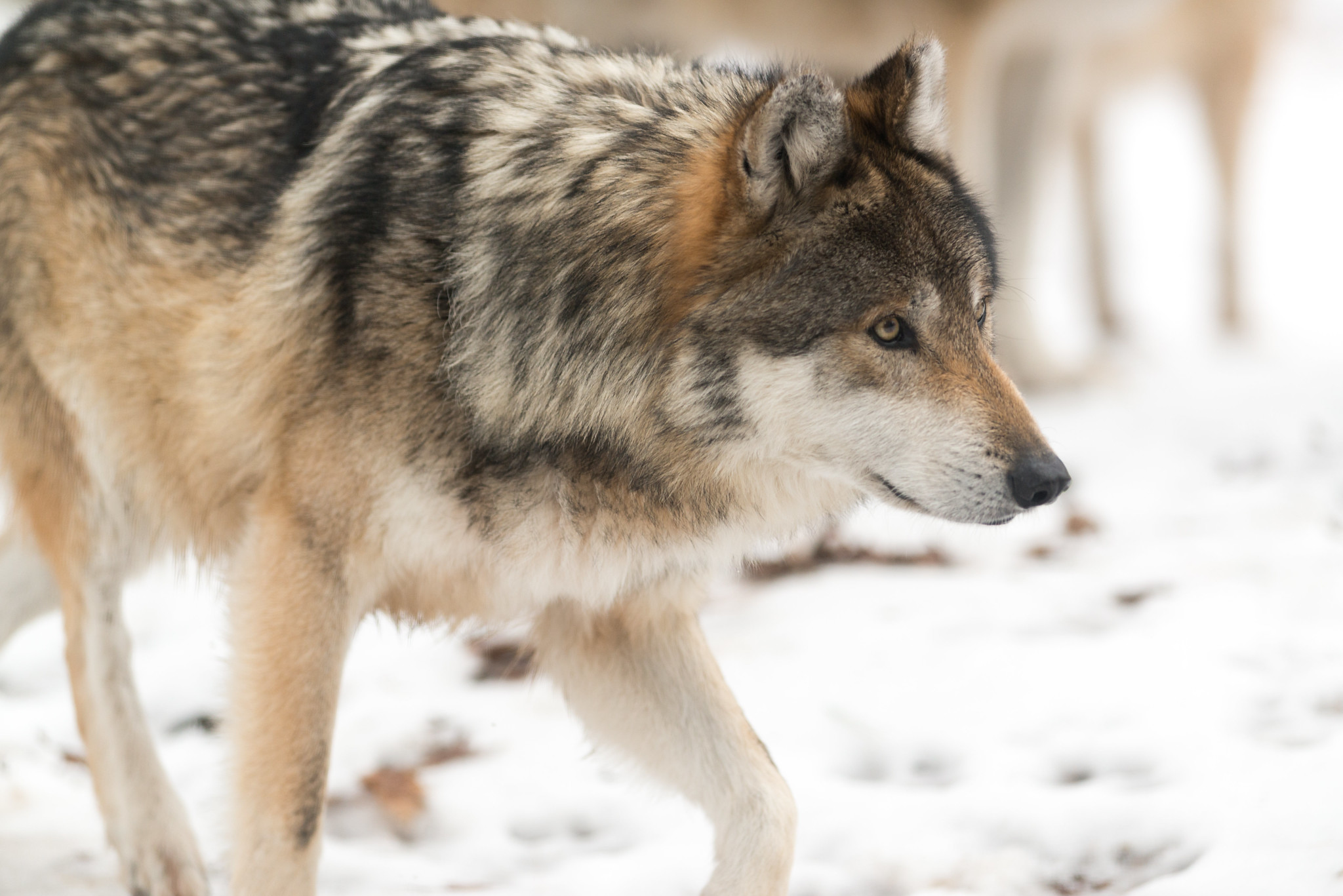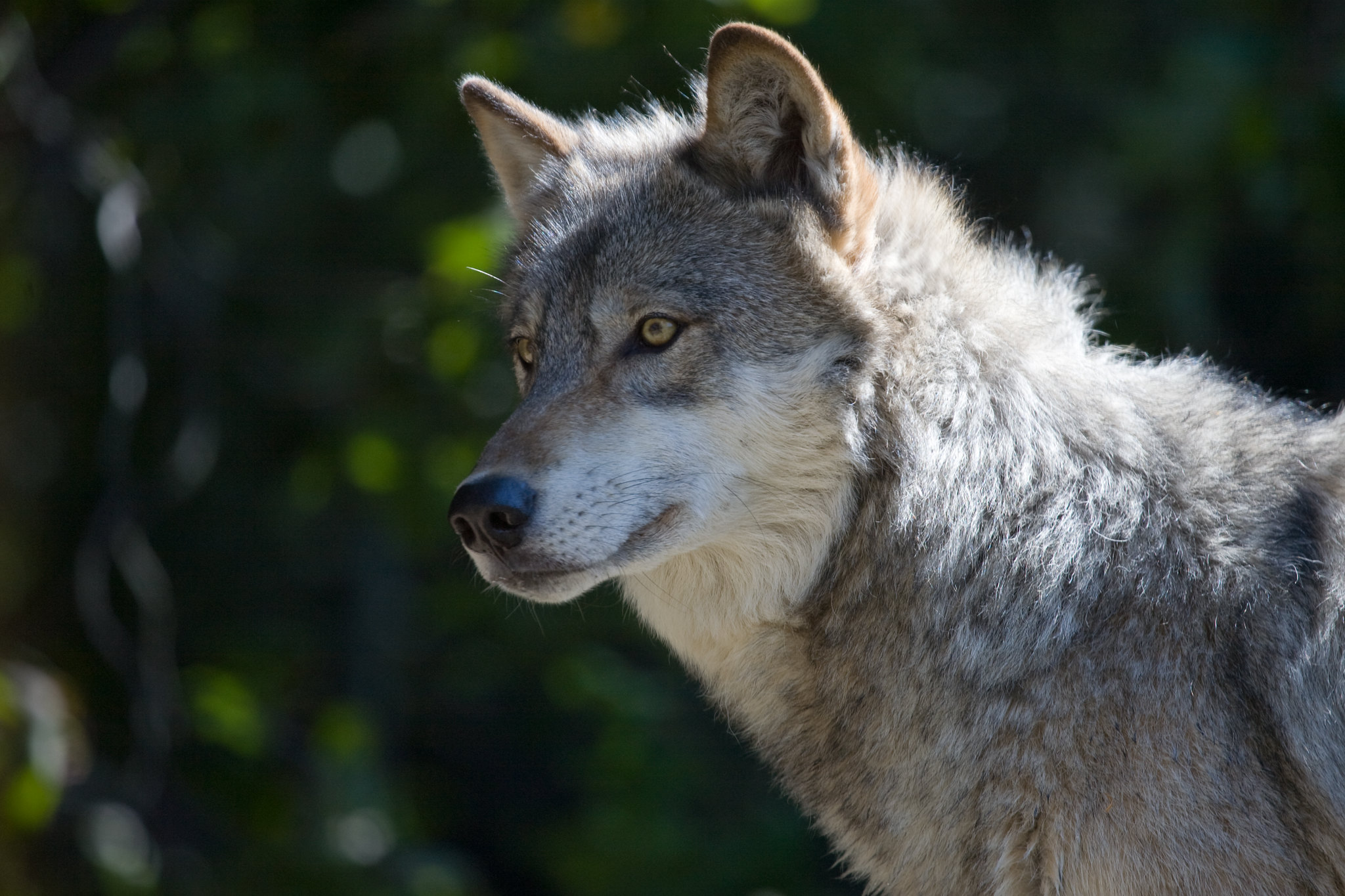A northern Wisconsin congressman is among a group of bipartisan lawmakers pushing to delist gray wolves from the federal Endangered Species list. Wisconsin congressional representatives are pushing to return management to the states for the third year in a row with a bill introduced on Tuesday.
U.S. Rep. Sean Duffy, R-Wis., said Wisconsin and other states should be able to manage the growing wolf population in a way that allows farmers to protect their herds.
“This is not being done so there can be a wolf hunt,” Duffy said. “This delisting is so farmers can protect their livestock.”
News with a little more humanity
WPR’s “Wisconsin Today” newsletter keeps you connected to the state you love without feeling overwhelmed. No paywall. No agenda. No corporate filter.
Jack Johnson, a director with the North Central Wisconsin Cattlemen’s Association, said he supports any effort to delist the wolf.
“The state could start managing them and get a little control over the numbers, because right (now) they’re expanding way more than we’ve got room for them,” Johnson said.
Former U.S. Rep. Reid Ribble, R-Wis., introduced such a bill the last two years.
A federal judge ruled in December 2014 that the gray wolf should be relisted as an endangered species in the western Great Lakes region. Since then, the population has grown to a minimum of 866 wolves in the state, said Dave MacFarland, large carnivore specialist with the Wisconsin Department of Natural Resources. He said 31 farms experienced wolf depredation or harassment in 2016 compared to the 35 farms in 2015.
“Prior to delisting, (livestock) conflict levels were higher depending on the metrics that you look at, and we were successful in bringing those conflicts down through the management actions that were taken,” MacFarland said. “We have seen a little bit of an uptick, but we’re still not to the levels that we were prior to the delisting in 2012.”
The state spent $200,505 in wolf damage payments to those who lost animals or livestock in 2015. MacFarland said the state is organizing claims from 2016.
“Given the number of dogs that were killed, the significant increase in the compensation payments related to hunting dogs, that is likely to drive an increase in the total amount of compensation,” MacFarland said. “But, we don’t know quite yet where that will fall.”
Laurie Groskopf, who lives just east of Tomahawk, said some cases of wolf conflicts aren’t always reflected in official records.
“I personally have lost a hunting dog. I also have neighbors and friends and relatives who have had their pets attacked, who have had livestock depredations,” Groskopf said.
Wolf advocates remain opposed to placing the wolf back under state management. Blogger Rachel Tilseth, founder of the website Wolves of Douglas County Wisconsin, said they have little faith in the state.
“Because apparently management of wolves means a wolf hunt,” Tilseth said. “For them, that’s the only way that they feel they can manage them is through the hunting and trapping and barbaric use of dogs.”
Wisconsin enacted a wolf hunt in 2012, but wolf harvests have been banned as a result of the endangered designation. Melissa Smith, executive director of Friends of the Wisconsin Wolf and Wildlife, argued wolf depredation is a “nonissue” in most of the western Great Lakes, especially when comparing the number of depredations to the number of livestock in Wisconsin.
“It’s certainly an issue if you’re that one small farmer, but there are many ways to help,” Smith said. “There are many NGO’s, the state of Wisconsin can implement plans, there’s fencing things you can do. But, we could support lethal removal of a wolf that’s proven to take livestock when nonlethal methods fail.”
Smith also criticized the state’s wolf management plan, which was created in 1999 and re-approved by the Natural Resources Board in 2007.
“Our state has decided that we should have 350 wolves or less based on a management plan that is over 16 years old,” she said. “In fact, they took updating the plan off the docket waiting for delisting status.”
MacFarland said the DNR wants to base any revision of its wolf management plan on the most current information possible.
“By sort of waiting to see how this situation on the ground changes, that’s going to allow us to have the most current plan possible when we do finalize it,” MacFarland said.
Peter David, wildlife biologist with the Great Lakes Indian Fish and Wildlife Commission, said tribes are concerned about the precedent that could be set with wolf delisting legislation.
“There are real concerns about any effort that undermines the Endangered Species Act if we start cherry-picking,” David said.
Wisconsin tribes oppose a wolf hunt and did not allow wolf hunting on reservations prior to the relisting.
“The tribes in general have supported maintaining wolves on the Endangered Species Act because of the cultural significance of wolves,” said David. “The tribes have felt those types of protections are appropriate for wolves.”
State Republican lawmakers sent a letter to Congress in November urging them to pass legislation to delist the wolf. Congressman Duffy said he’s confident a bill will pass this year.
“If this was an issue or an idea that was driven based on party lines, I would be less optimistic,” he said. “But, this is an issue that’s bipartisan, where you have Republicans and Democrats standing together. This is more of a regional issue that is bringing concern.”
Wisconsin Public Radio, © Copyright 2025, Board of Regents of the University of Wisconsin System and Wisconsin Educational Communications Board.






